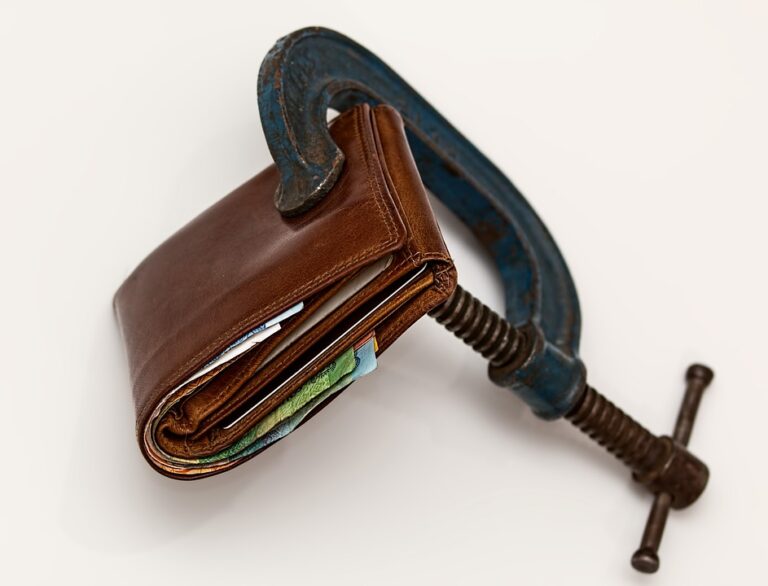Last updated Jun. 22, 2024 by Peter Jakes
In today’s fast-paced world, managing groceries effectively can make a significant difference in both your time and budget. With a thoughtful approach, you can ensure that grocery shopping is efficient and that you waste less food while spending less money. Here are 16 tips to keep your grocery in check:
1. Plan Your Meals
Planning your meals for the week can prevent last-minute shopping trips, reduce food waste, and save money. Decide on your meals and snacks for the week before you head to the store. Write a specific grocery list dividing it into categories such as produce, dairy, meats, and grains. This can streamline your shopping and help you stick to your budget.
2. Create a Shopping List
Always shop with a list. Base your list on your weekly meal plan, and check your pantry for items you already have. A list will focus your shopping, reducing impulse purchases and forgotten ingredients. An organized list ordered by store layout can also save time during shopping.
3. Shop with Coupons and Sales
Take advantage of sales and coupons to save money. Check out weekly ads from your favorite grocery stores and look for digital or printable coupons online. However, avoid buying items just because they are on sale if you don’t need them.
4. Buy in Bulk
For non-perishable items and staples that you use often (like rice, pasta, nuts, and dried beans), buying in bulk can be very cost-effective. Ensure that you have enough storage space to keep these items and that you can use them before they go bad.
5. Compare Unit Prices
Unit prices are the price per ounce, pound, or other measurement unit and are typically listed on the shelf along with the product price. Comparing these can help you determine the most cost-effective option, especially for bulk purchases.
6. Avoid Shopping When Hungry
It’s a well-known fact that shopping while hungry can lead to impulse purchases and unhealthy choices. To make smarter decisions, eat a snack or meal before heading to the store.
7. Cook at Home
Cooking at home is generally cheaper and healthier than eating out. Preparing meals from scratch can use items you already have in your pantry, reducing waste. Cooking in larger quantities and having leftovers for lunches or another dinner saves even more time and money.
8. Opt for In-Season Produce
In-season produce is typically fresher and less expensive than out-of-season options. Seasonal fruits and vegetables often taste better and offer more nutritional value too. Check out local markets, which often sell seasonal produce at lower prices.
9. Use Store Loyalty Programs
Many grocery stores offer loyalty programs that provide members with exclusive discounts, coupons, and even cashback rewards. Sign up for these programs and enjoy the savings on your regular purchases.
10. Shop at Discount Stores
Discount grocery stores can offer significant savings on quality items. Stores like Aldi, Lidl, and others often have a good selection of produce, meat, dairy, and pantry staples at lower prices than traditional supermarkets.
11. Cut Down on Convenience Foods
Pre-packaged and processed foods are typically more expensive and less healthy than whole foods. Cook from scratch as much as possible. Not only will you save money, but you’ll also have more control over the ingredients in your meals.
<div class="short-answer">
<style>
.short-answer {
position: relative;<
padding: 20px;<
padding-top: 30px;
background: #DFF9ED ! important;
border-color: #b0edd2 ! important;
border: 2px solid ! important;
border-radius: 6px ! important;
margin: 22px -3px 23px 0px ! important;
}
.short-answer h3 {
margin-top: 0 ! important;
}
</style>
<h3> ✓ Short Answer</h3>
<p> Effectively managing groceries involves thorough meal planning, list-making, and taking advantage of sales and loyalty programs. Buying in bulk, cooking at home, and focusing on in-season produce can substantially cut costs. Consider shopping at discount stores, cutting down on processed foods, and utilizing storage techniques to maintain freshness and reduce waste. Finally, be mindful of portion control and use technology like budgeting apps to track expenses and optimize grocery shopping. </p>
</div>12. Assess Your Pantry and Freezer Regularly
Every few weeks, take inventory of your pantry and freezer. Organizing these spaces allows you to know exactly what you have, reducing the chance of buying duplicates. Use older items before they expire, and keep the newer ones at the back to ensure nothing goes to waste.
13. Utilize Proper Food Storage
Good storage habits extend the life of your groceries. Store grains and legumes in airtight containers, keep fruits and vegetables at the right temperature, and freeze items that you won’t use immediately. Label and date your freezer items for easy tracking.
14. Grow Your Own Herbs and Vegetables
If you have space, consider growing your own herbs and vegetables. Even a small herb garden on a windowsill can provide fresh, flavorful additions to meals. In the long run, this can save money and ensure you have fresh produce on hand.
15. Stick to Your Budget
Set a grocery budget based on your financial situation and stick to it. Review your grocery expenses every month and adjust your budget as needed. Tracking your spending can help you identify areas where you can cut costs.
16. Use Technology
There are many apps available to help you manage your grocery shopping. Apps that track sales, digital coupons, and budgeting tools can help you keep your spending in check. Some apps even allow you to share your shopping lists with family members, ensuring everyone stays on the same page.
FAQs
How can meal planning save money?
Meal planning helps avoid unnecessary purchases by allowing you to buy only what you need. This reduces the chances of wasting food and saves money by preventing last-minute takeout or restaurant meals.
What are some examples of non-perishable bulk items worth purchasing?
Items such as rice, pasta, beans, lentils, canned goods, and nuts can be purchased in bulk. Ensure you have proper storage and that these items are staples in your household diet.
How do store loyalty programs save money?
Loyalty programs often offer exclusive discounts, personalized coupons, and cashback rewards that reduce the overall cost of your grocery shopping.
Is buying in bulk always cheaper?
While bulk buying can be cheaper, it depends on the item and your usage rate. Always check the unit price and ensure you have proper storage to prevent waste.
What’s the best way to store produce to extend its shelf life?
Different produce have different storage needs. For instance, root vegetables should be kept in a cool, dark place, while leafy greens should be stored in the refrigerator’s crisper drawer. Airtight containers and proper humidity control for certain produce can also help.
By incorporating these tips into your routine, you can streamline your grocery shopping, reduce wasted food, and maintain a more frugal household budget. Managing your groceries effectively is beneficial not only for your wallet but also for your overall lifestyle and well-being.







